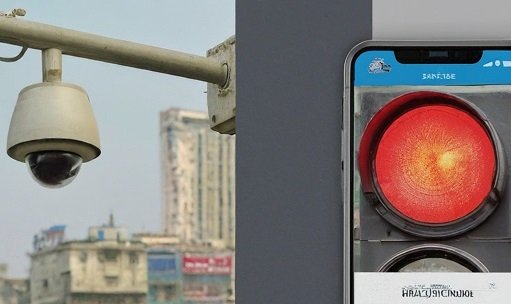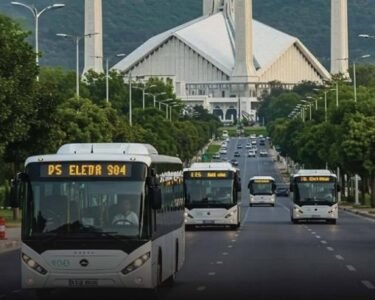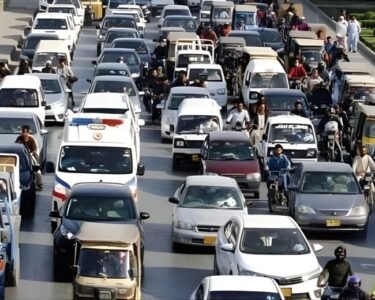In a landmark development for road safety in South Punjab, the Safe City Authority has introduced the electronic challan (e-challan) system in Muzaffargarh, signaling a major shift toward digital traffic enforcement and smarter policing.
The program was formally launched with a public awareness rally, which began at the Safe City office and concluded at the Muzaffargarh Press Club. The event saw participation from a wide spectrum of stakeholders, including:
- District Traffic Police
- Punjab Highway Patrol
- Rescue 1122
- Local educators, religious leaders, and civil society representatives
How the E-Challan System Works?
The newly implemented e-challan system is powered by an extensive network of high-definition surveillance cameras installed across the city. These cameras are capable of detecting:
- Traffic violations in real time
- Helmet and seatbelt usage
- Signal jumps, wrong-way driving, and overspeeding
Once a violation is detected, a digital ticket (e-challan) is issued and sent directly to the registered address of the vehicle owner.
But that’s not all—the same camera network is being integrated with law enforcement databases to assist in crime monitoring and public safety operations.
Public Awareness and Road Safety Campaign
Authorities used the launch event to educate the public on traffic rules, emphasizing:
- The importance of wearing seatbelts and helmets
- The need to follow traffic signals
- The role of citizens in supporting safe and efficient traffic systems
Officials reiterated that public cooperation is critical for the success of the system. Without active participation from the community, even the best technology can fall short.
A Step Toward Safer, Smarter Cities
Muzaffargarh is now among the growing list of cities in Punjab embracing digitally enabled traffic management systems. The implementation of the e-challan system not only improves transparency and efficiency in law enforcement but also aims to reduce accidents and save lives.
The system is expected to bring long-term improvements by:
- Enhancing driver accountability
- Discouraging repeat offenses
- Improving response time for police and emergency services
- Creating a data-driven foundation for future urban planning
Authorities plan to monitor the initial rollout and make enhancements based on feedback. If successful, Muzaffargarh’s model may serve as a blueprint for smaller cities across Pakistan looking to adopt safe city technologies.






